An alternating voltage of 141.4 V (rms) is applied to a vacuum diode as shown in the figure. The maximum potential difference across the condenser will be
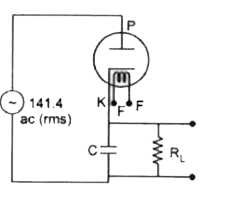 Solution in Kannada
Solution in Kannada
100V
200V
100√2V
200√2V
The correct Answer is:B
Vpeak=√2Vrms=√2×141.4=200V
Topper's Solved these Questions
- SOLIDS & SEMICONDUCTOR DEVICESBOOK - MODERN PUBLICATIONCHAPTER - SOLIDS & SEMICONDUCTOR DEVICESEXERCISE - Multiple Choice Questions - LEVEL -III (Questions From AIEEE/JEE Examination)
9 Videos
- SOLIDS & SEMICONDUCTOR DEVICESBOOK - MODERN PUBLICATIONCHAPTER - SOLIDS & SEMICONDUCTOR DEVICESEXERCISE - Recent Competitive Questions
26 Videos
- SOLIDS & SEMICONDUCTOR DEVICESBOOK - MODERN PUBLICATIONCHAPTER - SOLIDS & SEMICONDUCTOR DEVICESEXERCISE - Multiple Choice Questions - LEVEL -I (PARAGRAPH)
6 Videos
- ROTATIONAL MOTIONBOOK - MODERN PUBLICATIONCHAPTER - ROTATIONAL MOTIONEXERCISE - RCQ
8 Videos
- TRANSFERENCE OF HEAT BOOK - MODERN PUBLICATIONCHAPTER - TRANSFERENCE OF HEAT EXERCISE - Recent Competitive Questions
4 Videos
Similar Questions
Statement - 1 : Sky wave signals are used for long distance radio communication. These signals are in general, less stable than ground wave signals. Statement - 2 : The state of ionosphere varies from hour to hour, day to day and season to season.
View SolutionThe forbidden energy gap in Ge in 0.72 eV Given, hc=12400 eV−Å The maximum wavelength of radiation that will generate electron hole pair is
View SolutionIn a triode value for a grid voltage Vg=−1.2V , the phase current Ip and plate voltage Vp are given Ip=(−5+0.1V0),Ip in mAandVp in volt . When grid voltage is changed to - 3.2 V at constant plate voltage of 150 V , a plate current of 5 mA is observed , then
Plate resistance Rp is
View SolutionThe moment of inertia of a circular disc of radius 2 m and mass 1 kg about an axis passing through the centre of mass but perpendicular to the plane of the disc is 2 kg m2. Its moment of inertia about an axis parallel to this axis but passing through the edge of the disc is :

View SolutionTwo slabs are of the thicknesses d1 and d2. Their thermal conductivities are K1 and K2 respectively They are in series. The free ends of the combination of these two slabs are kept at temperatures θ1 and θ2. Assume θ1>θ2. The temperature θ of their common junction is
View SolutionThe rms value of potential difference V shown in the figure is
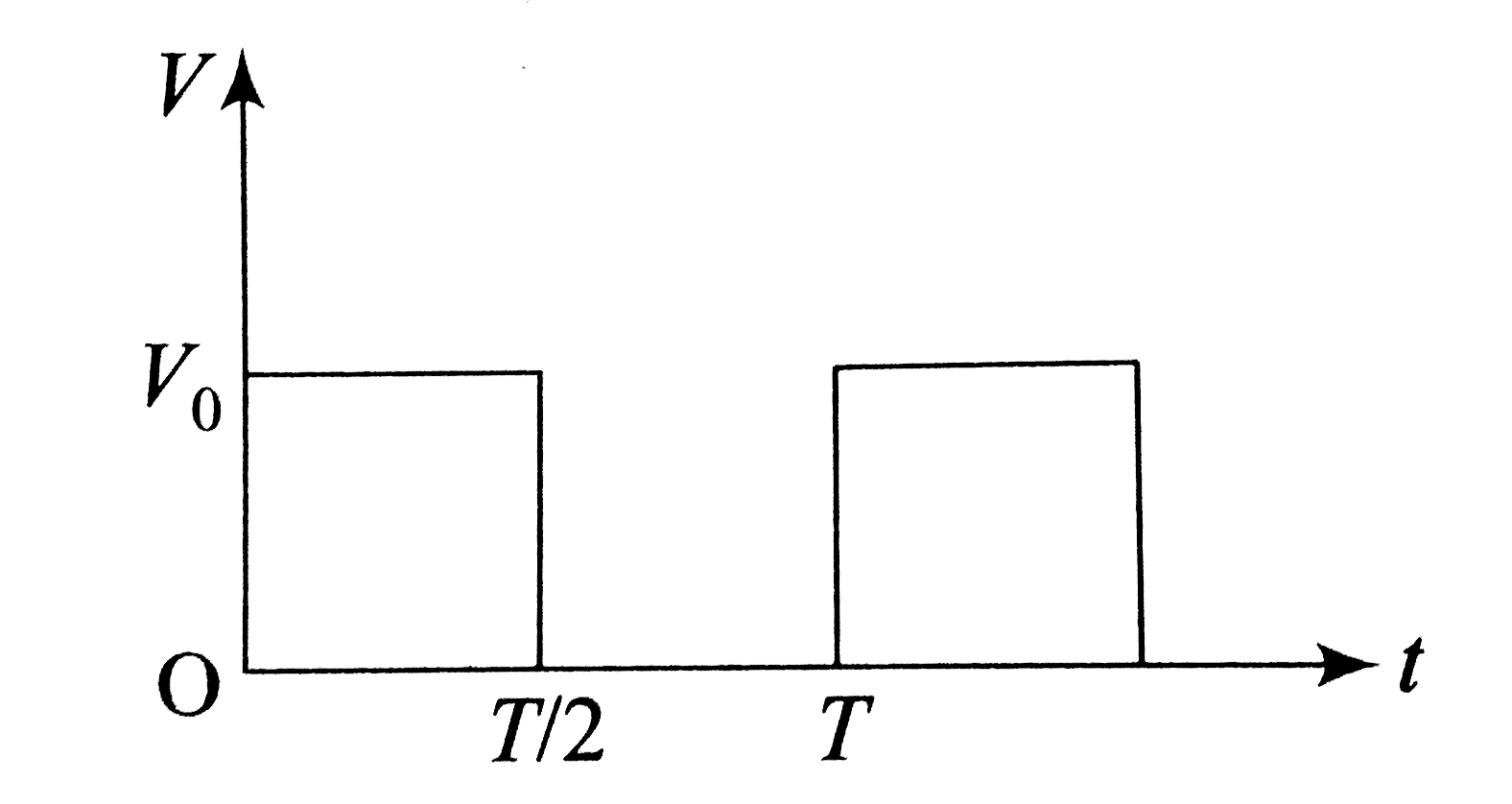
View Solution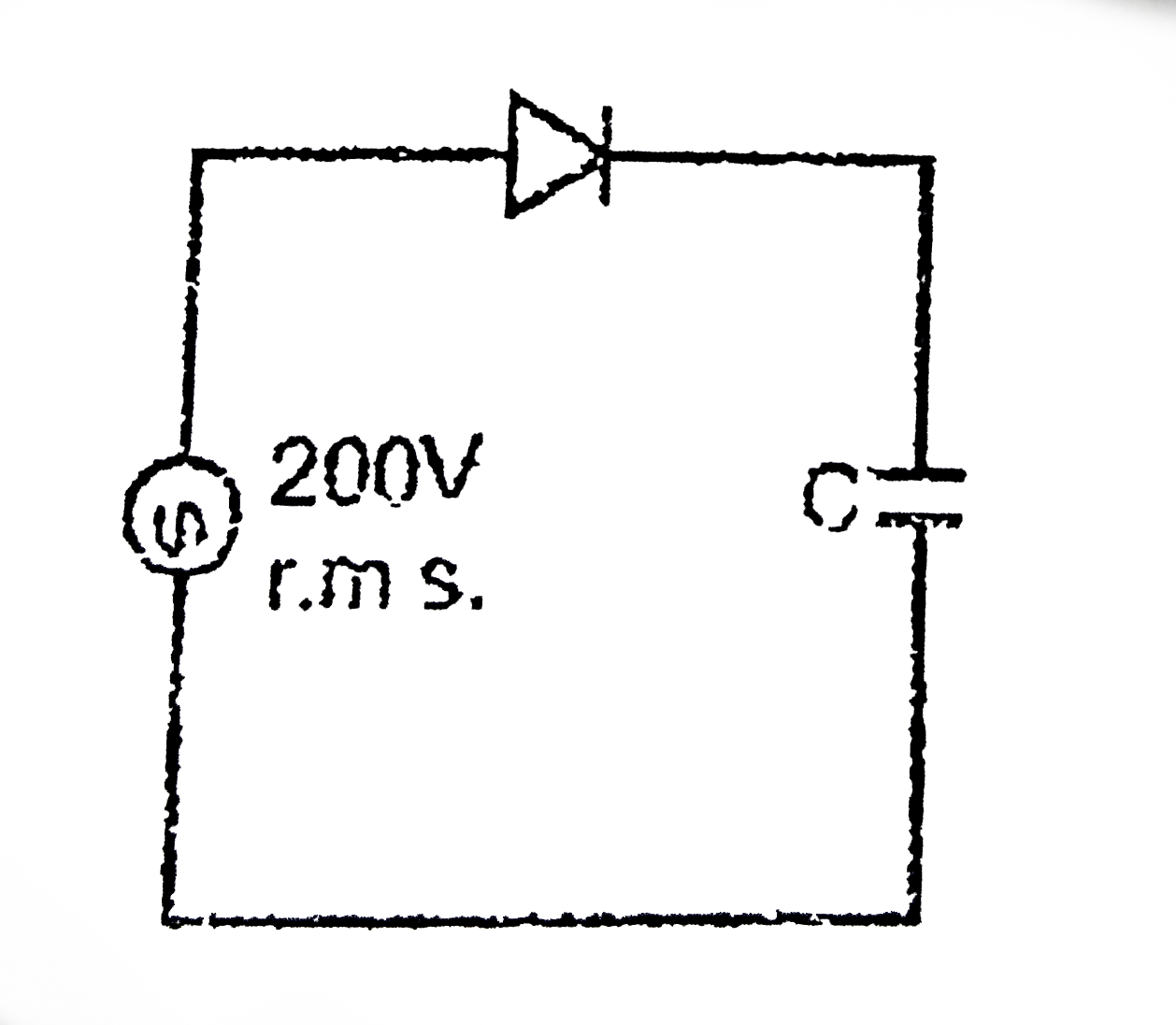
In the figure an A.C of rms voltage 200 volt is appled to the circuit containing diode and the capacitor and it is being rectified. The maximum potential across the capacitor C in volt will be
View SolutionAn alternating voltage of 141.4V(rms) is applied to a vacuum diode as shown in the figure. The maximum potential difference across the condenser will be

View SolutionA sinusoidal voltage of rms value 220V is applied to a diode and a resistor R in the circuit shown in fig. Show that half wave rectifaction occurs. If the diode is ideal, what is the rms voltage across?
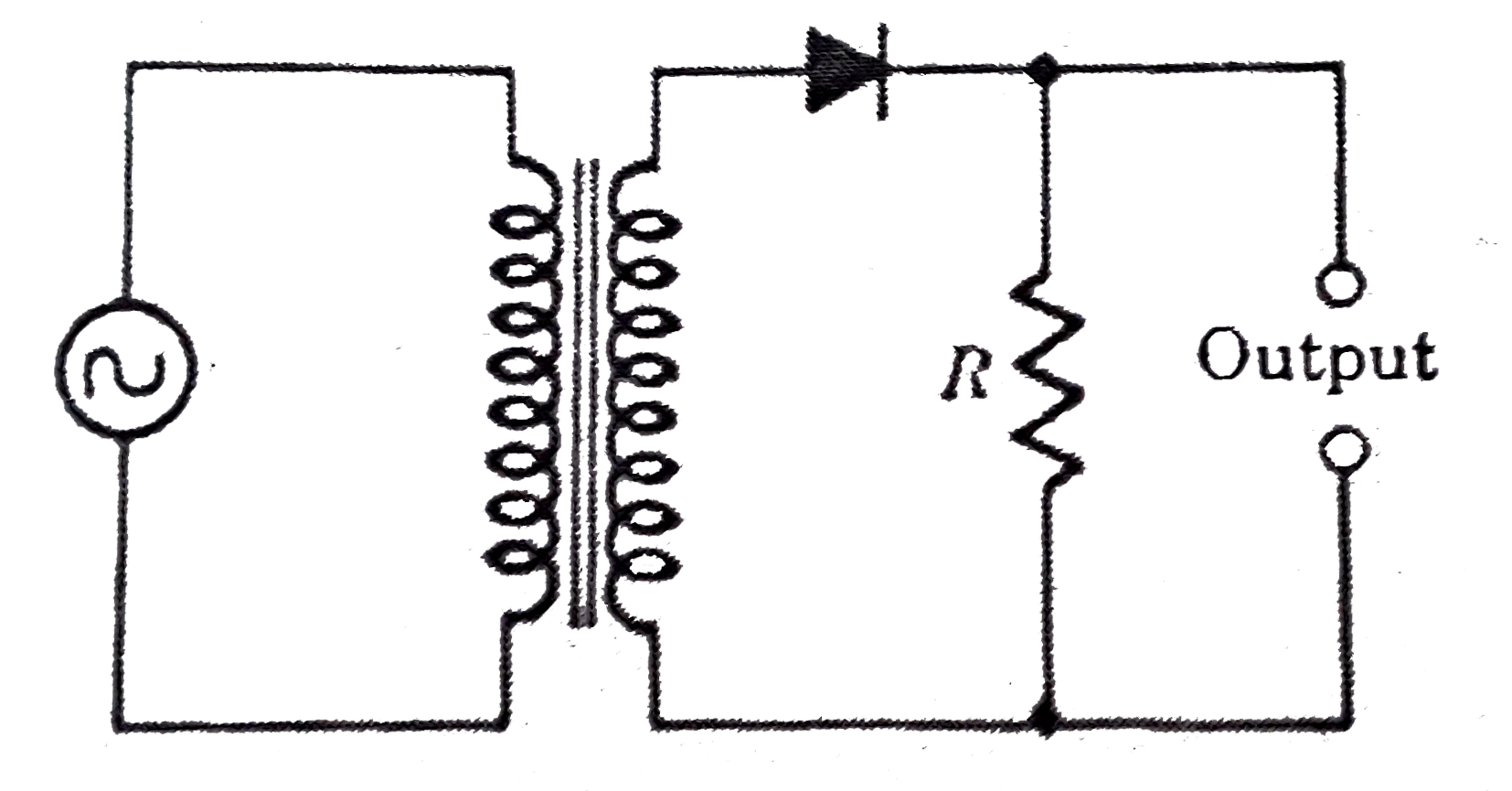
View SolutionIn the circuit shown if current for the diode is 20 muA , the potential difference across the diode is
View SolutionA sinusoidal voltage of rms value 220 V is applied to a diode and a resistor R in the circuit shown in figure so that half wave rectification occurs. If the diode is ideal, what is the rms voltage across R1?
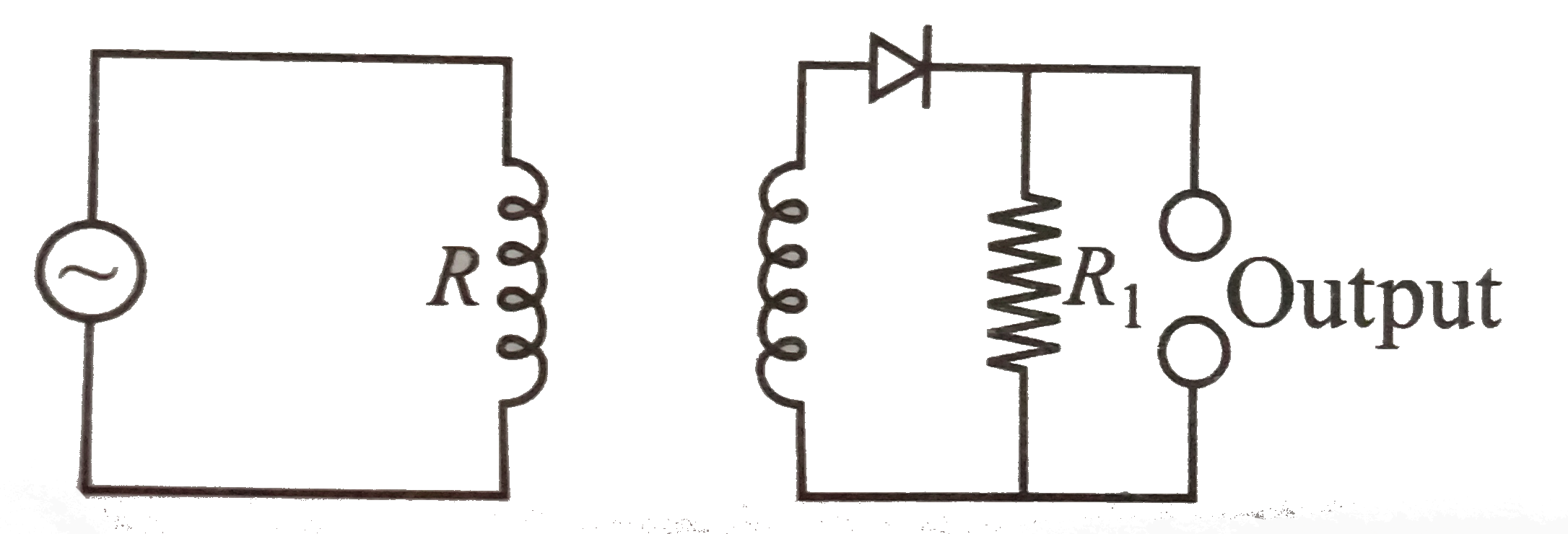
View SolutionA sinusoidal voltage of rms value 100V is connected to an ideal function diode as shown in figure. The final potential difference across the capacitor will be
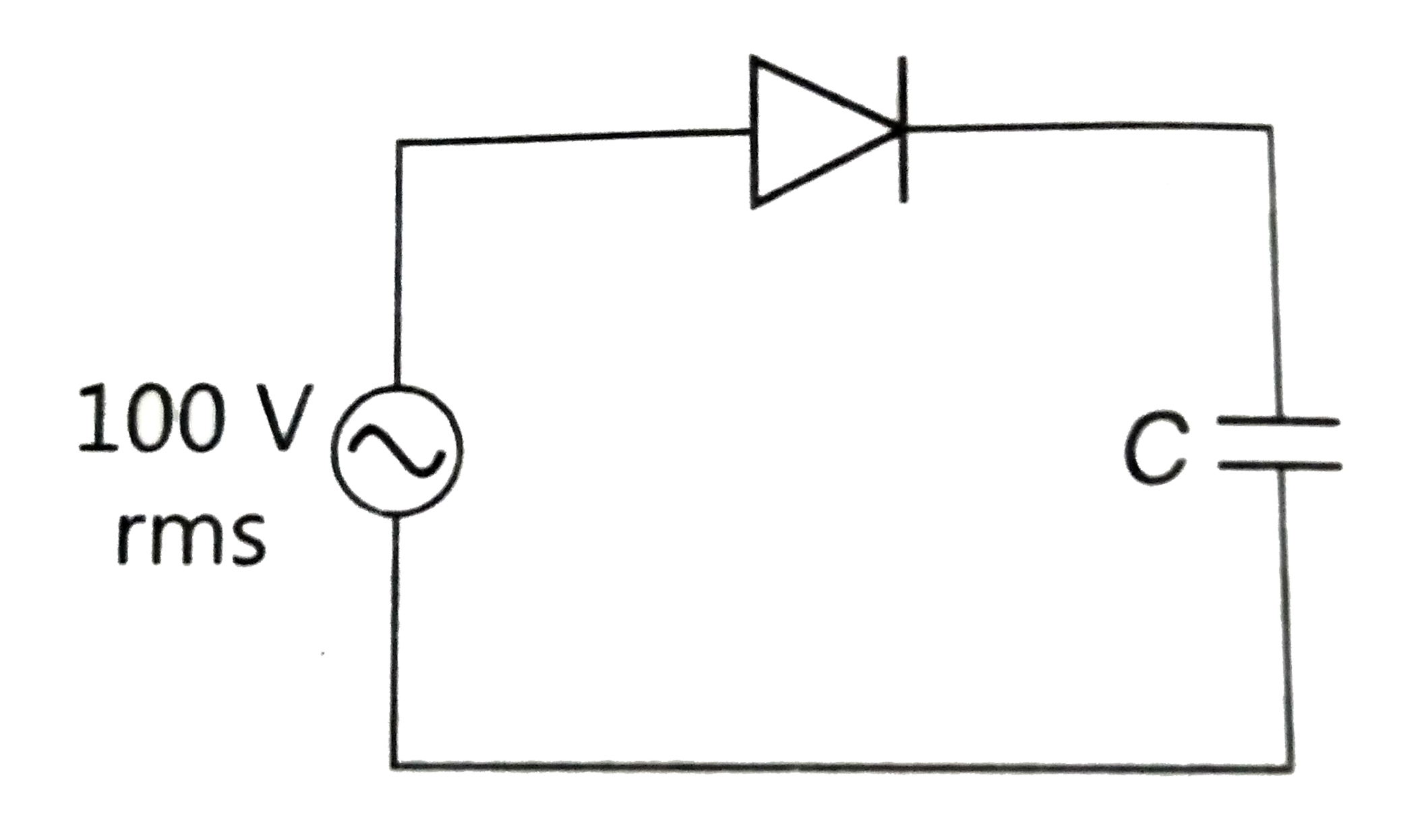
View SolutionIf an alternating voltage is applied across a diode in series with a load, then
View SolutionShown below is a graph of current versus applied voltage for a diode . Approximately , what is the resistance of the diode for an applied voltage of – 1 V ?
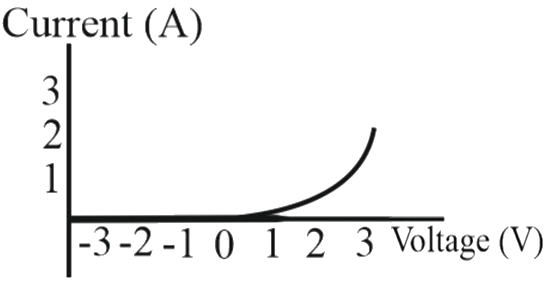
View SolutionA diode is connected to 200 V (rms) ac in series with a capacitor as shown in figure. The voltage across the capacitor is

View Solution
